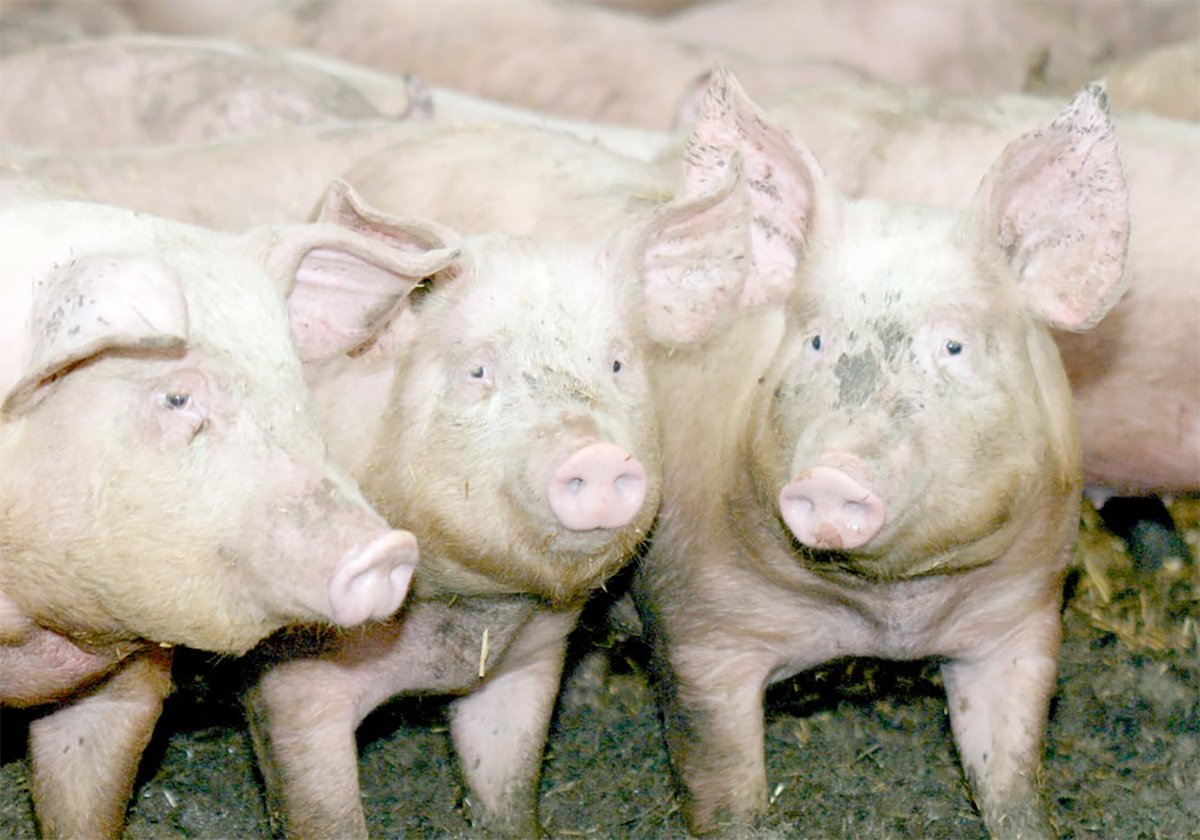Larry Helland would prefer to wipe last Aug. 27 from his memory banks.
The southern Alberta rancher and feedlot owner sold finished steers for 37 cents a pound that day. It coincided with the end of a BSE recovery plan that stipulated animals had to be killed to qualify for government help, yet there was no space in packing plants and no demand for excess beef being offered.
Helland, who with his family runs 700-800 cows near Lomond and operates a 3,000 head feedlot, said planning is the biggest challenge.
Read Also

The Western Producer Livestock Report – November 13, 2025
Western Producer Livestock Report for November 13, 2025. See U.S. & Canadian hog prices, Canadian bison & lamb market data and sales insights.
“The uncertainty is what is so hard. There is nothing you can bank on, there is nothing you know for sure.”
Only two pens of cattle have made money in the last year and Helland calculated that his losses average between $300-$400 per animal.
“It’s all red ink here,” he said.
To survive, the family switched to fall and spring calving to take advantage of seasonal price increases.
“We’ve really scrutinized the bottom line and decided to do things different,” he said.
Helland participated in a beef industry development fund study led by Kansas State University economist Ted Schroeder to measure the future of the Canadian beef business. Schroeder’s rec-ommendations encourage producers to form alliances, develop branded beef products and build more slaughter capacity within the next two years. Helland expected further analysis of the report once the border reopens to live cattle.
Stan Eby, president of the Canadian Cattlemen’s Association and a beef producer from Kincardine, Ont., said a new reality has emerged from this year’s emotional and financial losses.
“I question whether we’ll ever be able to put a financial figure on the crisis that BSE has put us in,” he said.
Last year, Statistics Canada valued the cattle industry at $7. 7 billion. Since last May 20, losses have been estimated at $11 million a day based on loss of the $4 billion export trade.
The greatest hurt is most apparent on individual farms, agribusinesses and small town businesses where the social fabric has been torn asunder.
Eby said this upheaval could drive some out of the business.
“Right across Canada the average age of farmers is not going down, it’s going up. We’ll see some people exit the industry here in Ontario because of age …. They’ll likely say, ‘this is enough risk.’ ”
Alberta Beef Producers chair Arno Doerksen, who raises purebred and commercial in southern Alberta and operates a feedlot, believes the aftershocks may continue for years.
He said the industry can rebuild but people have lost their savings. Their children are reluctant to stay in a business with such a murky future.
The uncertainty and loss has been most severe for the feedlot sector, particularly in Alberta where beef is the largest agricultural business. The province has 5.675 million head of cattle and more than two million are finished for beef annually.
According to the market analysis firm Canfax, last year’s collapse in Canadian fed cattle prices started immediately after May 20.
Ontario steer prices fell to $76 per hundredweight from $109 in five weeks, hitting $34 per cwt in July and August – 70 percent of normal.
Alberta markets showed prices for the week of Aug. 8 of $28-$37 per cwt. compared to $87-91 for the same week in 2002.
For Feb. 6, 2004, Alberta fats had climbed to $73-78 but these were dismal compared to the year pre-vious, when they were averaging $113-119 per cwt.
Calf prices in the 550 pound range in the first half of 2003 were $10 to $15 lower than 2002, with the exception of November when prices were actually higher.















